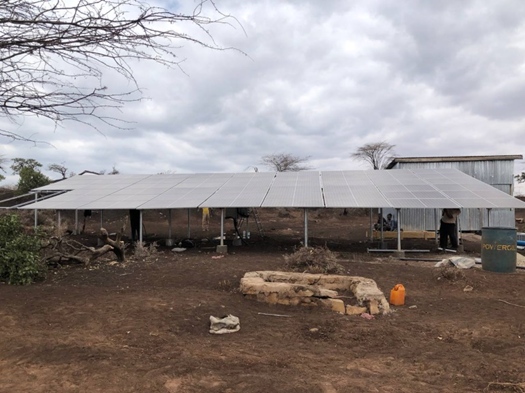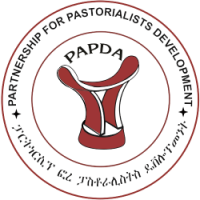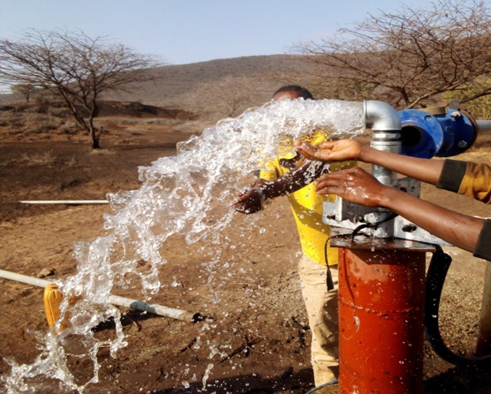- Success stories
- 2mins read
- 37 Views
Introduction:
Arda Oru kebele is Found in Oromia Region of East Bale Zone at Dawe Kachen Woreda. The rehabilitation of the Arda Oru borehole by PAPDA is a significant success story for the pastoralist communities of the East Bale zone of the Oromia region in Ethiopia. This project, implemented by the Pastoralist Livelihood Support Project Phase II (PALSUP-II) with a project lifetime of 3 years (2021-2023), was financed by Misereor and aimed to address the severe water shortages faced by these communities.
The Arda Oru borehole, originally drilled by the Oromia Water Bureau, had become non-functional, leaving the community struggling to access clean water. PAPDA stepped in to rehabilitate the borehole, replacing the diesel generator with modern solar-powered systems and upgrading the water pump.
The Arda Oru borehole rehabilitation has profoundly impacted the community, alleviating water scarcity, improving health outcomes by reducing waterborne diseases, and enhancing the overall well-being of the people and their livestock. This success story highlights PAPDA’s commitment to sustainable development and its positive impact on the lives of Ethiopia’s pastoralist communities.
The Challenge
The Arda Oru community in Dawekachan Woreda, Oromia region, faced a severe water crisis due to the failure of a borehole initially drilled by the Oromia Water Bureau. The borehole became non-functional, leading to a shortage of safe drinking water for both people and livestock. The recurring droughts exacerbated the situation, leaving 2,283 households and their 60,950 livestock vulnerable to water scarcity. The cost of operating diesel generators to power the water supply system was also unsustainable, further hindering access to clean water.
The Solution
The Partnership for Pastoralists Development Association (PAPDA), with financing from Misereor, took on the task of rehabilitating the Arda Oru borehole. The diesel generator was replaced with solar-powered technology, specifically 370W multi-crystalline solar modules, and the old water pump was upgraded to a new Grundfos pump. This upgrade increased the borehole’s daily water production to 72 cubic meters, significantly improving the water supply to the community. Additionally, PAPDA established and trained local Water Management Committees to ensure sustainable management of the rehabilitated water infrastructure.
Results and impacts
- Improved Water Access: The rehabilitation led to a reliable, clean water supply for 2,283 households, 14,611 individuals, and 60,950 livestock in Arda Oru and the surrounding areas.
- Financial Benefits: The switch to solar power eliminated the need for diesel, reducing operational costs. The local Water Management Committee saw its savings grow from 5,000 birrs to 500,000 birrs within a year after the rehabilitation, demonstrating the project’s financial sustainability.
- Health and Well-being: The availability of clean water reduced the incidence of waterborne diseases in the community, contributing to better health outcomes for people and livestock.
- Community Empowerment: Establishing and training Water Management Committees empowered the community to manage and maintain the water supply system, ensuring long-term sustainability.


Conclusion
The rehabilitation of the Arda Oru borehole by PAPDA is a prime example of how targeted interventions can address critical challenges faced by vulnerable communities. By modernizing the water supply system and shifting to renewable energy, PAPDA not only solved the immediate water crisis but also enhanced the community’s resilience against future droughts. The project’s success is evident in the improved health and economic stability of the community, showcasing the importance of sustainable solutions in humanitarian efforts. The involvement of the local community in managing the water system further ensures the long-term impact of the project.




